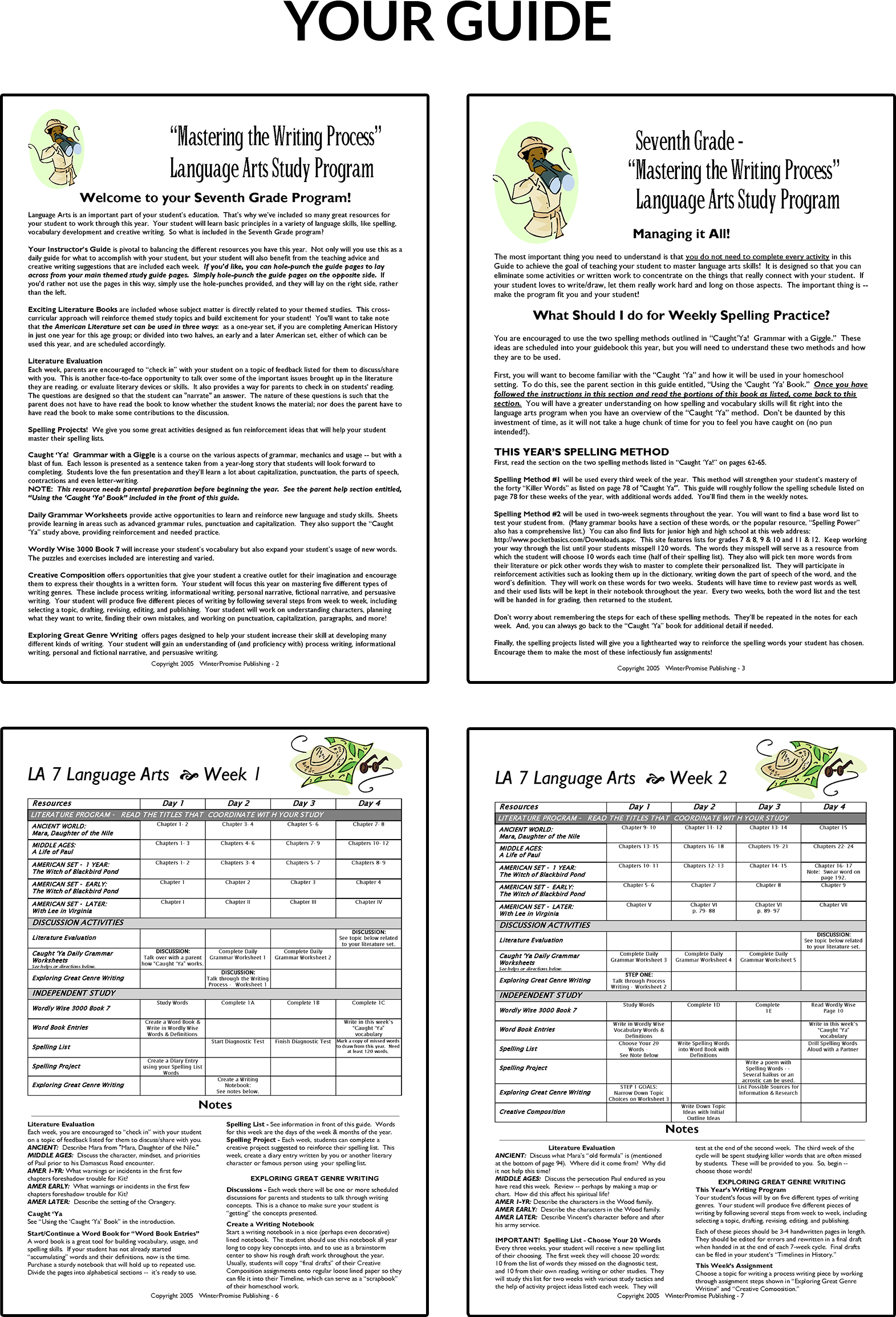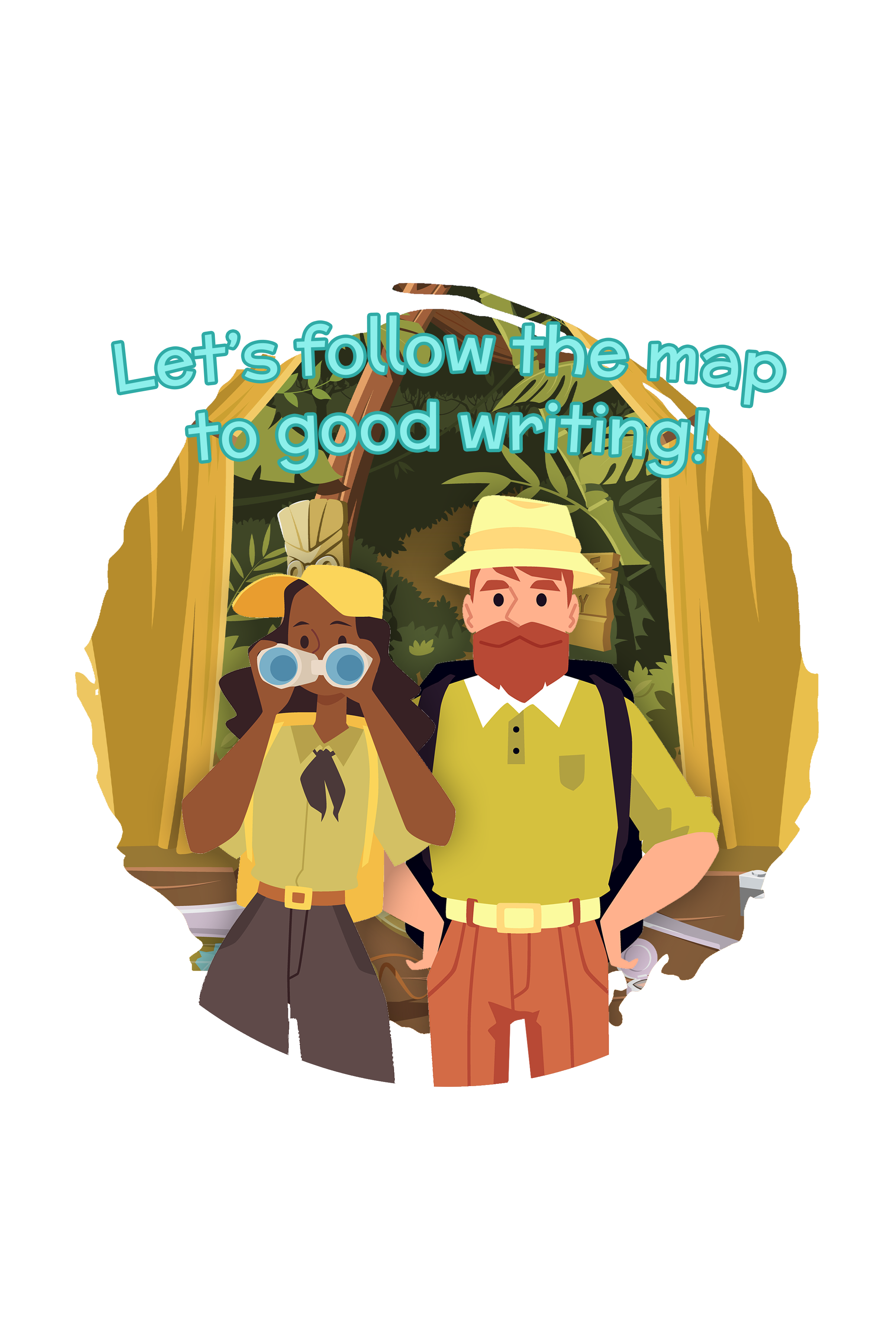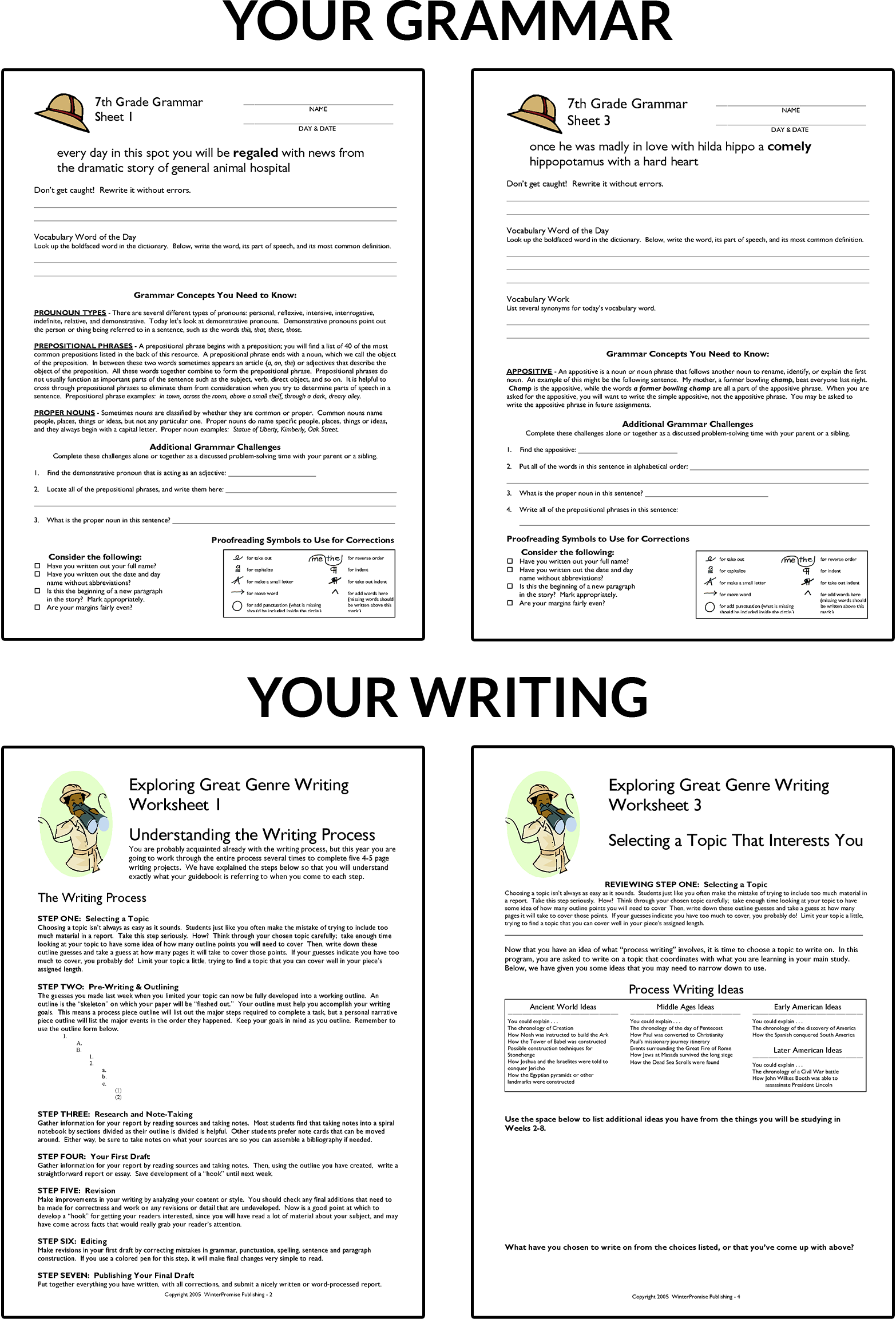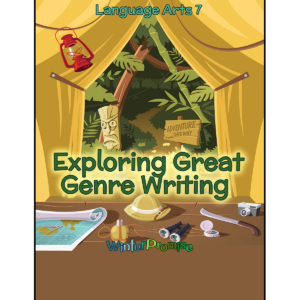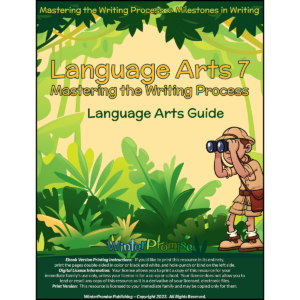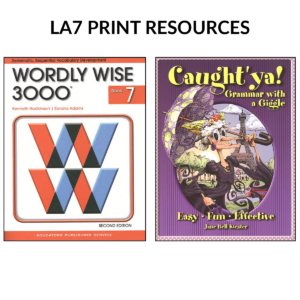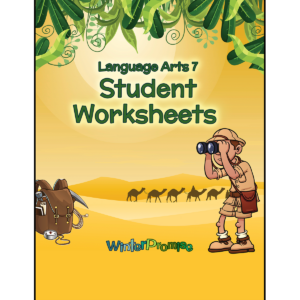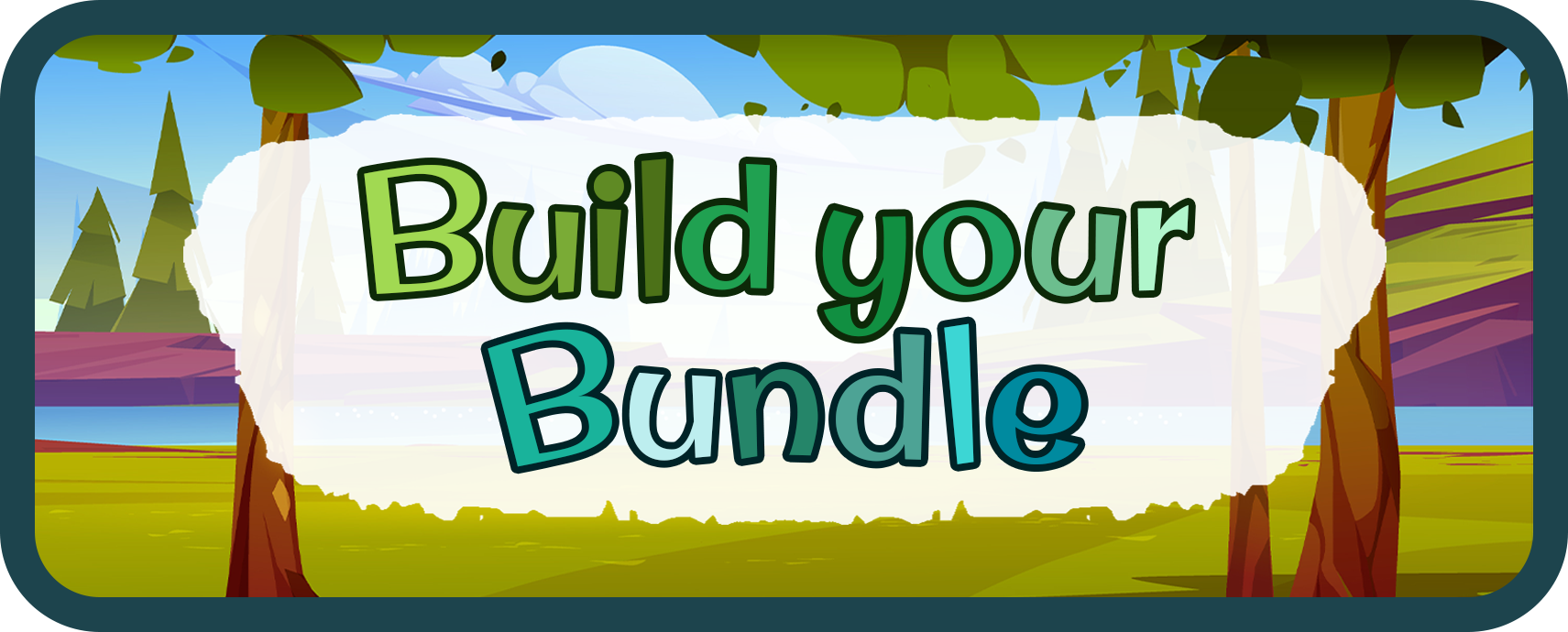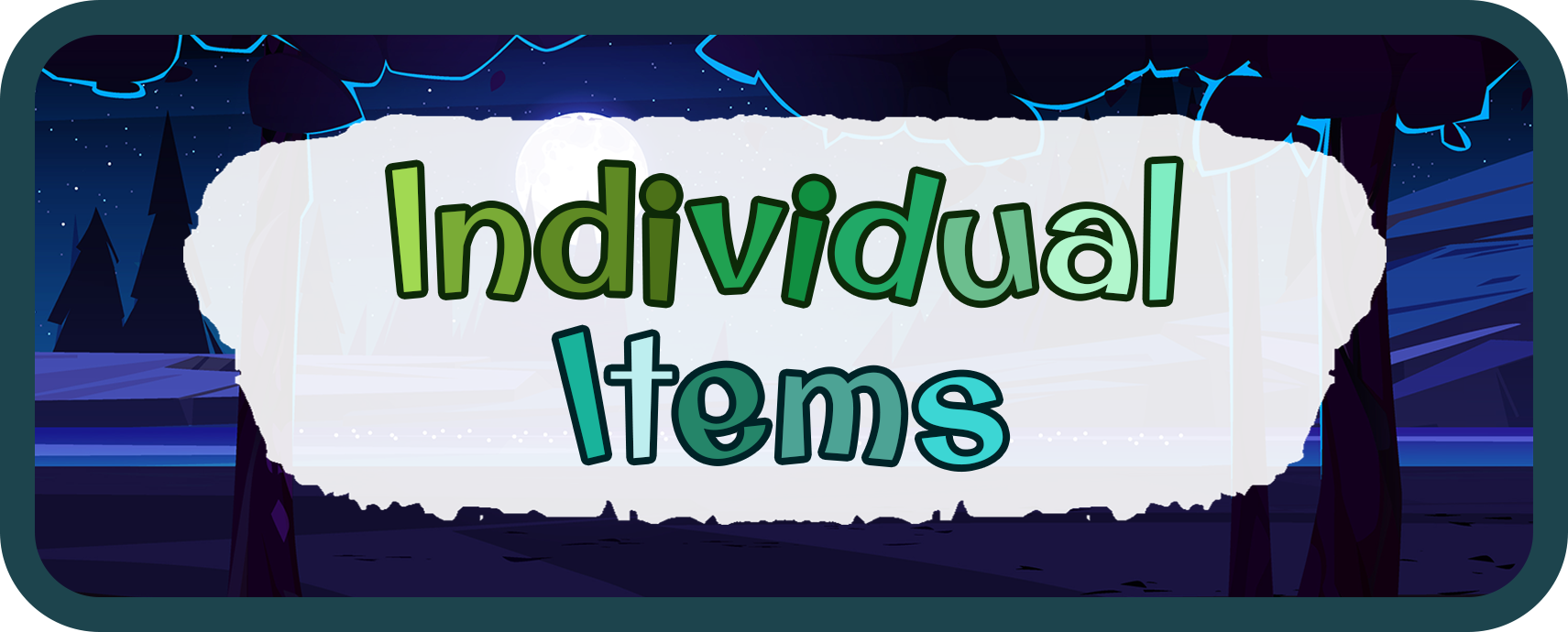Literature Evaluation is an essential part of this program. Each week, parents/teachers are encouraged to “check in” with the student on a topic of feedback listed for them to discuss/share with you. Creative composition offers opportunities that give your student a creative outlet for their imagination and encourage them to express their thoughts in a written form. We also give you some great activities designed as fun reinforcement ideas that will help your student master their spelling lists!
Click through the options below to learn more about the resources found in this program!
LA7
-
LA7 Guide
-
LA7 Resources
-
LA7 Workbooks
-
LA7 Spelling Resources
What’s in the LA7 Guide?
This guide is 36-week schedule that coordinates the variety of resources included in this program. It schedules, writing instruction, writing ideas, literature, literature evaluation, spelling, vocabulary, grammar, and other language skills. This guide also has an answer key for the resources “Caught ‘Ya: Grammar with a Giggle” and LA 7 “Student Grammar Worksheets.” Teaching helps and other references are included in the front matter of this guide. Shown below is a thorough look at how this guide covers and schedules the different concepts in this guide.
What will you study in the LA7 Resources?
Grammar & Language Skills Component to LA 7 “Mastering the Writing Process”
LA 7 “Mastering the Writing Process” uses the fun book “Caught ‘Ya: Grammar with a Giggle” to help students practice grammar skills. About three times a week, students will copy a passage that has errors in it, seeking to eliminate the errors and write it correctly. WinterPromise makes this book even easier to use by supplying supplementary LA 7 “Student Grammar Worksheets.” The passage is written out on the worksheet with the errors, and space is given to rewrite it without errors.
In addition, these LA 7 “Student Grammar Worksheets, add additional grammar exercises for the student to answer about the passage. The errors in the passage include grammatical errors with parts of speech, word function, mechanics, capitalization, punctuation, or redundancy, or they can be spelling errors, usage errors such as wrong word choices or homonym mix-ups, and so on.
Another part of the daily scheduled LA 7 “Student Grammar Worksheet” work is a bolded vocabulary word. This word is one that junior high students need to learn as part of standard vocabulary development, and students are expected to look up a definition and list its part of speech.
As the student rewrites the passage without errors, fun can be added by making it a challenge to see if a parent or sibling can catch him making a mistake. (Thus the “Caught ‘Ya: Grammar with a Giggle” name!) The passages themselves are part of a longer, lighthearted story that students will enjoy following. An answer key for passage errors in the “Caught ‘Ya: Grammar with a Giggle” student book, and worksheet answers are in the LA 7 guidebook.
Exploring Great Genre Writing:
These lessons will increase a junior high student’s ability to write several types of genre. These include process writing, informational essays, personal narratives, fictional narratives, and persuasive writing. Junior high students using LA 7 “Mastering the Writing Process” program will master the writing process using “Exploring Great Genre Writing” as a guide, then demonstrate what they learn in five different written reports.
They begin by learning to understand the Writing Process. By understanding the basic steps of the writing process — selecting a topic, pre-writing and outlining, research and note-taking, creating a first draft, revising, editing, and publishing a final draft — they will develop key writing skills for mostly non-fictional paper writing. Once students understand the basics of the Writing Process, they will start practicing those skills by producing actual papers. Each of the five papers they will complete is a different genre of paper.
Concepts Covered in “Exploring Great Genre Writing” Resource
Process Writing – Not to be confused with the “Writing Process,” process writing is how an author explains how something is done, or the “process” of how something is accomplished.
Key Skills:
-
How to Outline Process Writing
-
Using Transition Words
-
Developing a Great “Hook” to Start Your Paper
Informational Writing – What most people imagine when they think of writing a report, informational writing relays information to the reader. It only gives information, relaying facts on people, places, things, or events.
Key Skills:
-
How to Outline Informational Writing Depending on Your Topic
-
Developing a Bibliography
Personal Narratives – These narratives express the author’s own experiences with a focus on sharing feelings and events from the author’s point of view.
Key Skills:
-
How to Outline a Personal Narrative
-
How a Personal Narrative Outline Contrasts with Other Genre Outlines
-
Learning to Show, Not Tell
Fictional Narratives – A fictional narrative allows a writer to tell a made-up story, or a fictional account of an event. Fictional narratives come in many types: historical, fantasy, science fiction, mystery, and modern fiction.
Key Skills:
-
Outlining Fictional Narratives
-
Developing Setting, Characters, Conflict, Events and Resolution
-
Three Great Ways to Begin Fictional Narratives
Persuasive Writing – This type of writing expresses and opinion and tries to persuade others to believe in a particular point of view, or take action on a particular issue.
Key Skills:
-
Outlining Persuasive Writing
-
Choosing an Effective “Hook” for Persuasive Writing
Student Worksheets:
These daily worksheets allow students to correct grammatical and usage errors, as well as investigate new vocabulary words. This one hundred-page resource works as a support to the “Caught ‘Ya: Grammar with a Giggle” resource. We here at WinterPromise make the “Caught ‘Ya: Grammar with a Giggle” easier to use by supplying these supplementary worksheets. The passage from the book is written out on the LA 7 “Student Grammar Worksheets” with the errors, and space is given to rewrite it without the errors.
In addition, WinterPromse adds additional grammar exercises for the student to answer about the passage. The errors in the passage include grammatical errors with parts of speech, word function, mechanics, capitalization, punctuation, or redundancy, or they can be spelling errors, usage errors such as wrong word choices or homonym mix-ups, and so on. Another part of the daily work is a bolded vocabulary word. This word is one that 7th and 8th grade students need to learn as part of standard vocabulary development, and students are expected to look up a definition and list its part of speech.
As the student rewrites the passage without errors, fun can be added by making it a challenge to see if a parent or sibling can catch him making a mistake. Thus the name for the companion resource, “Caught ‘Ya: Grammar with a Giggle.” The passages themselves are part of a longer, lighthearted story that students will enjoy following.
What are the LA7 Spelling Resources:
Wordly Wise 3000 Book 7:
Vocabulary building exercises help your child learn words with several or unfamiliar meanings. This resource has been renamed by the publisher. This title used to be listed as “Wordly Wise 3000 – Book 4.”
Caught'Ya! Grammar with a Giggle:
Want to Dive Deep?
Click here to learn more about our Jr. & Sr. High LA Programs and dive deep into what your student will learn!



